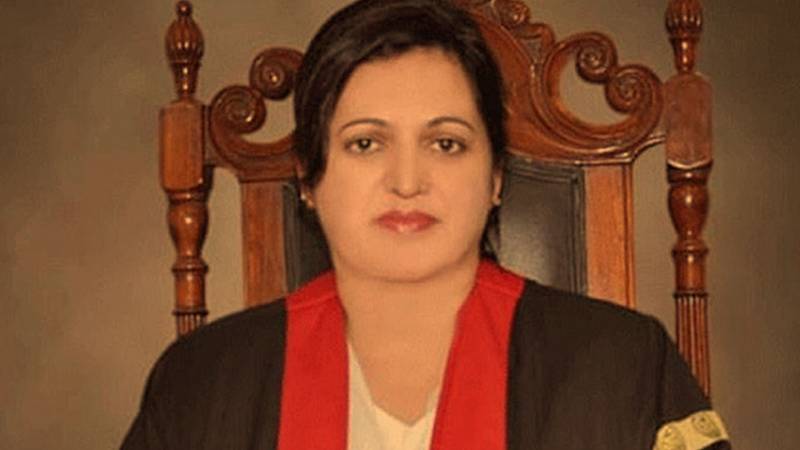
The Judicial Commission of Pakistan (JCP) unanimously appointed Justice Aalia Neelum as the new Chief Justice of the Lahore High Court.
Justice Aalia Neelum will continue to serve until November 11, 2028.
She will be the LHC's first female Chief Justice. She is regarded as a judge with competence in criminal law.
Earlier, the JCP discussed appointing Judge Neelum as the next chief justice of the LHC during its last meeting.
Both the attorney general of Pakistan and the law minister had agreed to consider Justice Neelum as the new LHC CJ.
Justice Shujaat Ali Khan was the senior puisne judge of the LHC, while Justice Neelum was third on the LHC's seniority list following the promotion of current LHC CJ Malik Shahzad Ahmad Khan and Justice Shahid Bilal Hassan to the Supreme Court.
Although it is not a constitutional obligation to designate a high court's senior puisne judge as the next chief justice, all senior puisne judges have been appointed as CJs since the 18th Constitution Amendment, which changed the system for appointing superior court justices in 2010.
Justice Aalia Neelum was born on November 12, 1966. She received her LL.B. degree from the University of Punjab in 1995 and became an advocate the following year.
She was licensed to practice law as an advocate in Pakistan's Supreme Court in 2008. Since her appointment to the Lahore High Court bench in 2013, Justice Aalia has delivered various reported verdicts on important legal matters.
Justice Aalia's scholarly background is extensive. She has a Master's degree in Political Science from the University of Punjab and many certificates in law and the judiciary. She also holds a B.Ed. degree from her alma mater.
Justice Aalia has vast experience in criminal, civil, and anti-terrorism laws. She has also acted as the focal point for gender-based violence tribunals, making substantial contributions to this important area of the judiciary.

